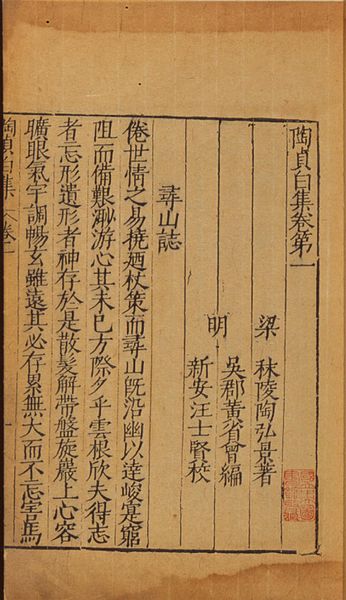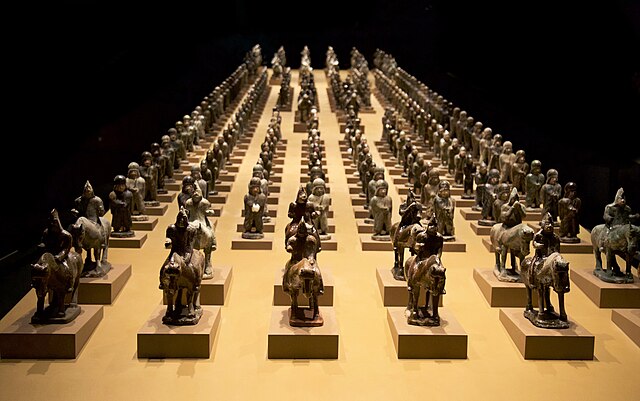Tao Hongjing (456–536), courtesy name Tongming, was a Chinese alchemist, astronomer, calligrapher, military general, musician, physician, and pharmacologist during the Northern and Southern dynasties (420–589). A polymathic individual of many talents, he was best known as a founder of the Shangqing "Highest Clarity" School of Taoism and the compiler-editor of the basic Shangqing scriptures.
Tao Hongjing Listening to the Pines, 1442 (Muromachi Period), Yamanashi Prefectural Museum
Xunshan zhi (尋山志, "Rhapsody on Exploring the Mountains") that Tao Hongming wrote at the age of fifteen, Ming dynasty (1573–1620) edition
Dunhuang manuscript of preface to Tao Hongjing's Bencao jizhu (本草集注, Collected Commentaries to the Shennong Ben Cao Jing), dated 718
Northern and Southern dynasties
The Northern and Southern dynasties was a period of political division in the history of China that lasted from 420 to 589, following the tumultuous era of the Sixteen Kingdoms and the Eastern Jin dynasty. It is sometimes considered as the latter part of a longer period known as the Six Dynasties (220–589). Albeit an age of civil war and political chaos, it was also a time of flourishing arts and culture, advancement in technology, and the spread of Mahayana Buddhism and Daoism. The period saw large-scale migration of the Han people to the lands south of the Yangtze. The period came to an end with the unification of all of China proper by Emperor Wen of the Sui dynasty.
Army of Northern Wei terracotta soldiers in Xianbei uniform, tomb of Sima Jinlong, 484 CE.
Northern Wei officer. Tomb statuette, Luoyang Museum.
Northern Wei Buddha Maitreya gilt-bronze figurine, 443
Civil officer, Western Wei, 535–557







